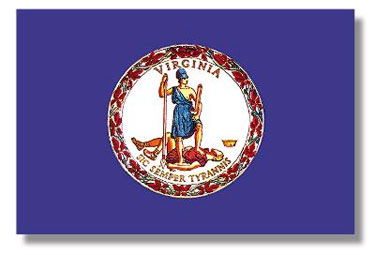One way to handle the other side’s resistance to paying attorney’s fees – “We’re made from rubber, and you’re made from glue….”
As regular readers know, I take an interest in fee-shifting litigation (that is, litigation involving one party’s liability to the other party for attorney’s fees). Because the American Rule (which is not a substantive rule of law but is rather a common law presumption followed in the United States) requires that each litigant bear its own attorney’s fees, fee-shifting litigation is the exception and not the rule in American common law. In fact, such litigation more or less occurs only by way of a statute with a fee shifting provision or by way of a contract between the parties requiring one party or the other to pay the other’s attorney’s fees if litigation takes place.
Both the Virginia Fraud Against Taxpayers Act and the federal False Claims Act contain fee-shifting provisions–however, there is not a great deal of case law analyzing the fee-shifting provisions of those statutes. I attribute that to several factors. First, successful qui tam cases under those statutes will normally generate a fee far in excess of a lawyer’s standard hourly rate. Therefore, no one worries so much about the hourly rate the lawyer receives from the defendant.
Second, and perhaps more important, is the fact that there is always an 800-pound Gorilla in the room, or at least right outside the door, when relator’s counsel discusses his or her entitlement to a statutory attorney’s fee in a qui tam case. The 800-pound Gorilla is the government, who has the final right to either bless or reject any kind of proposed settlement in a qui tam case under the VFATA or the FCA. Relator’s counsel should therefore push back if a defendant refuses to pay any money whatsoever for attorney’s fees (and defendants will pretty much always try this at first) but the wise relator’s counsel will be able to negotiate a fair amount for the fees without threatening the entire settlement.
So, there is far more fee-shifting case law out there concerning federal statutes like the Fair Labor Standards Act, Fair Debt Collection Practices Act, and so forth; litigation involving a contractual entitlement to attorney’s fees, by way of contrast, is more likely to be decided under state law principles.
So I read with some interest an opinion last week from the U.S. District Court for the Southern District of Illinois regarding defense counsel’s production of detailed billing statements for their client, CDW-G in U.S. ex rel. Liotine v. CDW Government, Inc., 2013 WL 1611427 (S.D.Ill.,2013).
In Liotine, relator’s counsel responded to a defendant’s request for his hourly billing records in an interesting fashion–he asked for the billing records of the defendant’s lawyers…hence the subtitle of this post is “We’re made from rubber and you’re made from glue, anything you say bounces off of us and just sticks to you.” When the Magistrate Judge granted the motion, the defendants took exception to the the Magistrate Judge’s ruling (in other words they appealed) to the District Court judge…who upheld the Magistrate Judge’s ruling.
It will be indeed interesting to see what comes of the billing records of the defendant’s lawyers. I myself have never used this approach in a FCA case or FLSA case for several reasons. First and foremost, the defendant’s billing records are not important to me in these cases because there is more or less zero chance that my clients will be responsible for paying it. (Note that this is limited to statutory-fee shifting that is a one-way street. If a fee-shifting provision arises in a contract case, for example, I might very well ask for some information about the other side’s fees if the provisions requires payment to a prevailing party.)
But I am sure there must have been a good reason for the relator’s counsel to ask for such discovery in this case, and we shall see what turns up …
